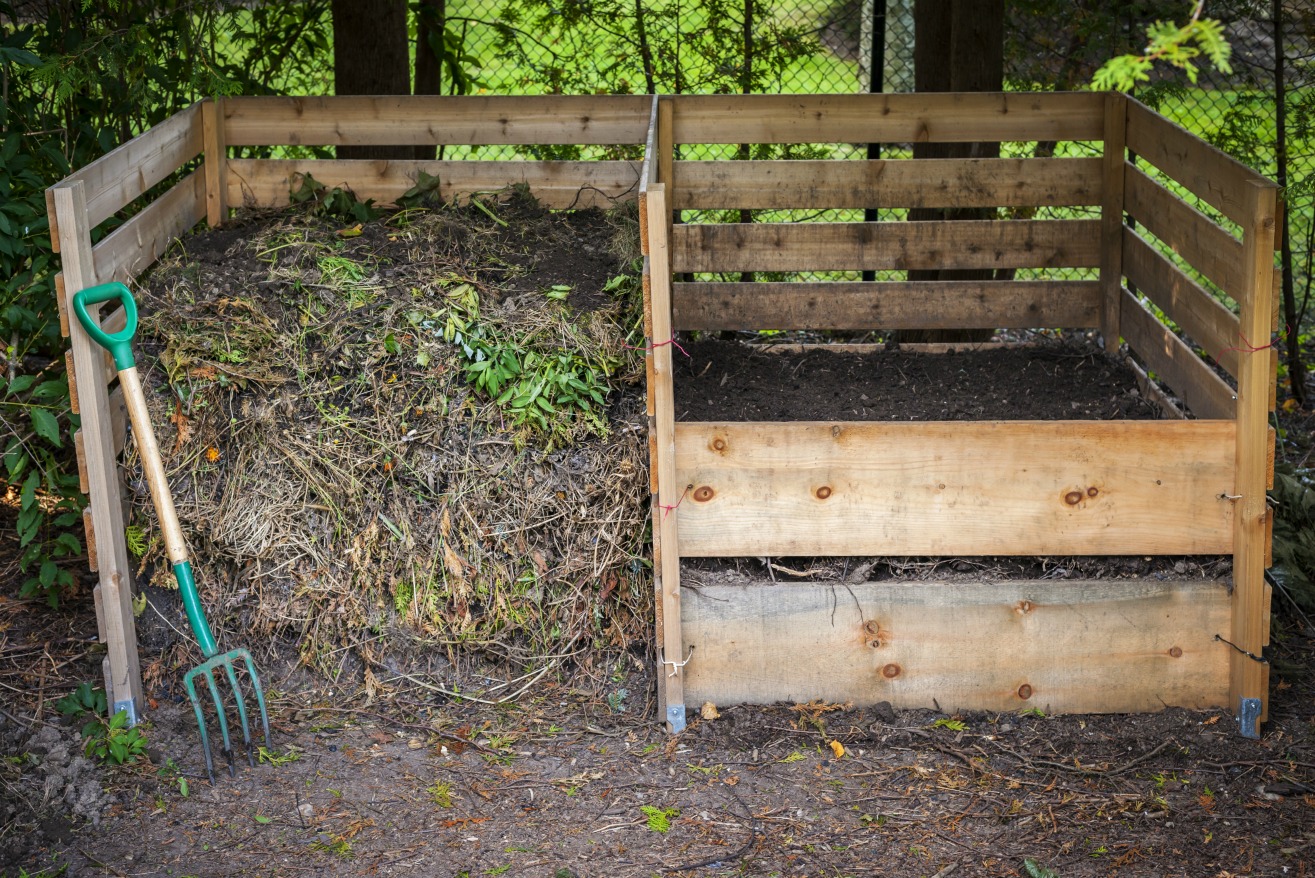Raising chickens and gardening go hand in hand. You may know that you can improve your garden with your chickens, but have you tried composting to improve your garden? It’s a simple way to reduce your waste and make your garden better, all at the same time.
What is composting?
Composting is a method of reducing waste and turning it into something that gardeners like to call ‘black gold’. When you compost, you take kitchen and household waste and allow it to break down. Many waste materials, especially from the kitchen, contain valuable nutrients that plants need. With enough compost, you can eliminate the need to buy fertilizer.
Composting is very eco-friendly. You can take things that you’d normally toss into the trash and make good use of them. Composting can eliminate nearly all of the organic waste that you’d throw away. You’ll also find that it will save you money in your garden. Over time, composting can add significant amounts of nutrients into your garden’s soil.

What can you compost?
There are a ton of things that you can compost! There are many different composting methods and some composting methods can create a ‘hot’ pile. A hot composting pile usually breaks down materials the fastest and has the ability to break down more materials. If you want to compost things that are hard to break down, like seeds or tree limbs, you’ll need a hot compost pile. But a hot compost pile isn’t necessary for a successful compost pile.
You do need to be aware of the two types of materials that you can put into your compost: green and brown matter. Green matter is from things that you might have in your kitchen: potato or banana peels, apple cores, pieces of carrot or lettuce, etc. Brown matter is usually, well, brown in color. It includes dead leaves, cardboard, newspaper, etc.
You’ll want to aim for a ratio of ⅓ green to ⅔ brown matter in your pile. This will help your compost to break down without getting smelly. A good compost pile doesn’t smell rotten or stinky. A good compost pile will eventually smell like dirt. If your compost pile stinks, odds are that you’ve put something into it that you shouldn’t have.
Here are some things that you shouldn’t compost:
- Meat or fish
- Dairy products
- Bones, or bone broth
- Fried food
- Bread
- Oil
- Diseased Plants
- Walnuts
- Sawdust
- Stubborn weeds (i.e. dandelions, ivy or kudzu)
- Glossy printed paper or cardboard
Some of these food items, like meat or dairy, will attract both scavengers and bad bacteria to your compost pile that will cause it to smell rotten. Oil doesn’t break down in a compost pile and will also cause it to smell bad. Diseased plants will leave the disease-causing germs in the compost pile, and could infect future plants that you apply the compost to. Walnuts contain a toxin that is harmful to garden plants. Sawdust from wood that has been treated will not break down well in the pile and will add chemicals to the compost pile. Stubborn weeds may not view your compost as a place to die back, but instead will probably see a place to flourish. Glossy paper, like that found in magazines, is laden with ink and chemicals that will leach into your compost and prevent the paper from breaking down.
How can you start composting?
Getting started with composting is simple. There are many composter designs out there. Some of them can even fit under your kitchen sink and can break down waste in a couple of months.
The easiest way to start composting is to start a pile in your backyard. You can start a compost pile right on top of the soil. This will allow worms and beneficial insects to get to your compost and start breaking it down for you.
Start by laying down a layer of straw. This will help to increase the airflow under the compost pile. It will also help to prevent water from standing under the pile, which can slow the composting process. The first layer of compost should be from green sources- grass clippings, kitchen scraps or green leaves.
Keep a small pile of grass clippings or straw next to your compost pile. When you add kitchen scraps, cover it with a layer of the grass or straw to discourage annoying insects, like fruit flies, that are naturally attracted to your compost.
Every couple of weeks, take a pitchfork or shovel and give your compost pile a ‘flip’. This will help distribute oxygen through the pile.
Over time, you’ll be able to see your kitchen scraps and other waste start breaking down and turning into a rich fertilizer that you can add to your garden.